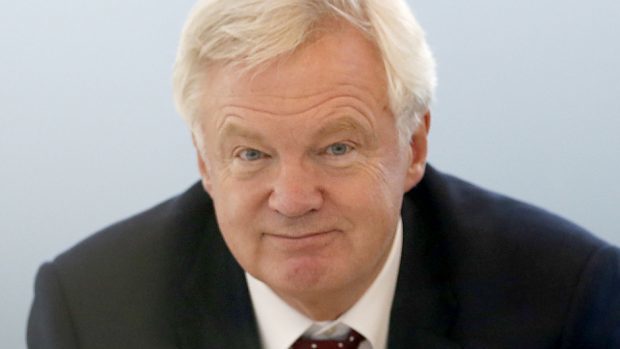David Davis has cast doubt on whether the UK will succeed in securing a Brexit deal that delivers the “exact same benefits” as EU membership.
The Tory frontbencher said he made “no apology for being ambitious”.
But he acknowledged achieving the desired outcome was “a matter of negotiation and negotiations are uncertain”.
In January, Mr Davis said the government had come up with the idea of “a comprehensive free trade agreement and a comprehensive customs agreement that will deliver the exact same benefits as we have [at the moment]”.
At the time, his words were widely interpreted as a guarantee and the sentiment was echoed by Theresa May on Wednesday, just hours after Brexit was formally triggered.
The prime minister added: “What we’re both looking for is that comprehensive trade agreement which gives that ability to trade freely into the European single market and for them to trade with us.
“It will be a different relationship, but I think it can have the same benefits in terms of that free access to trade.”
However, Mr Davis insisted yesterday his earlier comment “wasn’t a promise, it was an aim”.
Asked about it, he said: “I make no apology for being ambitious about what we’re trying to do.
“We are playing for the national interest here, I am going to aim as high as conceivably possible.”
Meanwhile, Mrs May continued to face claims she was trying to “blackmail” Brussels by linking trade and security in her letter notifying the EU of Britain’s intention to quit.
Critics accused the prime minister of issuing a veiled threat with her warning that “a failure to reach agreement would mean our co-operation in the fight against crime and terrorism would be weakened”.
But Mr Davis rejected the accusations and stressed the response from EU leaders to Mrs May’s letter had largely been warm.
In other developments, the senior minister also said it was “quite likely” – depending on the policy decision – that MPs would vote on whether the UK should leave the European single market.
But a Brexit department spokesman later clarified that no vote was envisaged.
They added: “We will not be a member of the single market or the European Economic Area.
“Once we leave the EU, the EEA Agreement will no longer be relevant for the UK.
“We are considering what steps, if any, might need to be taken to formally terminate the EEA Agreement as a matter of international law.
“That is what the secretary of state was referring to in the House .”
